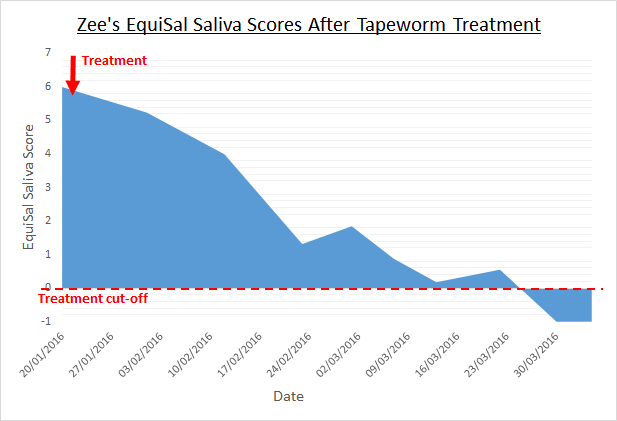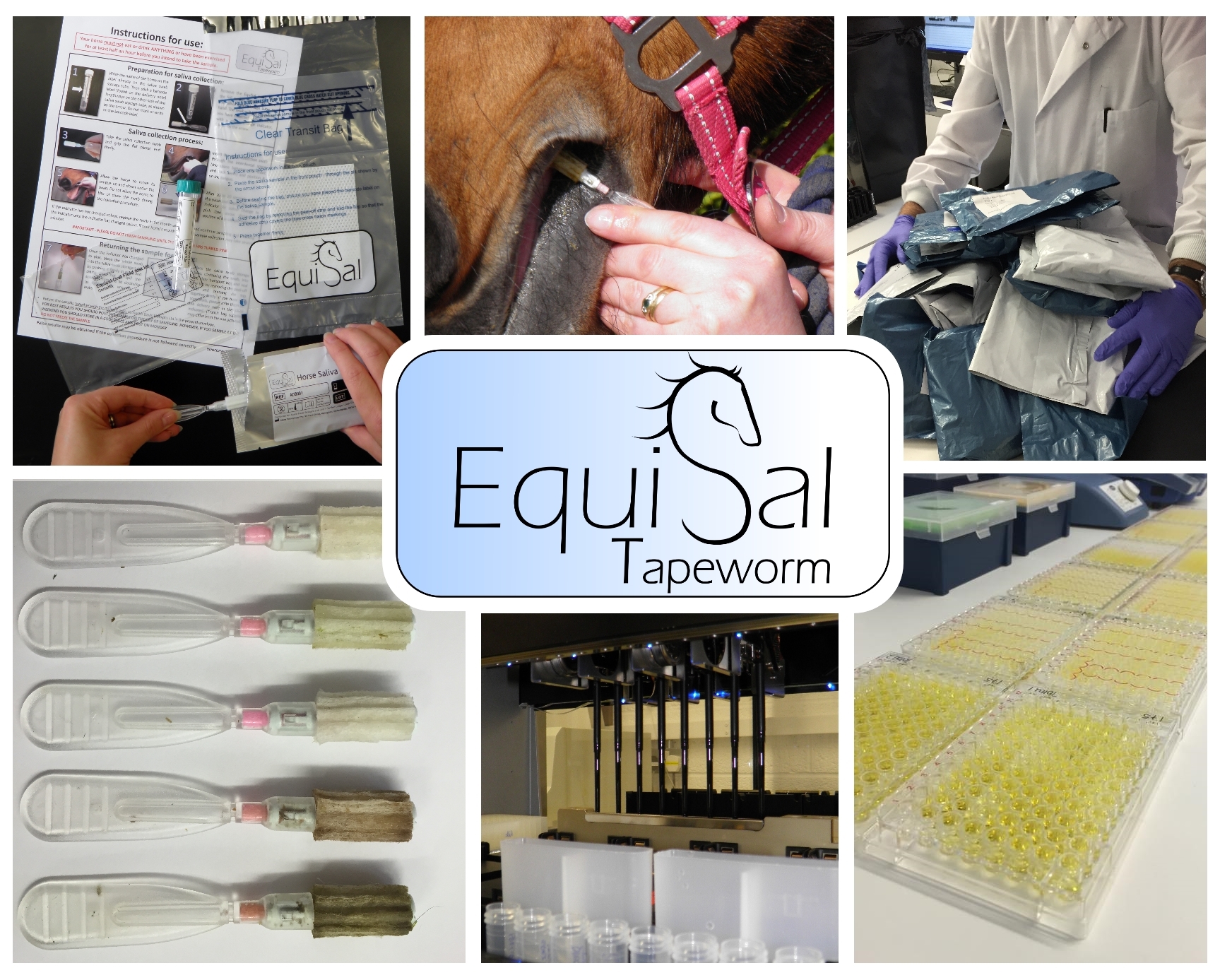Home News and Research Effective targeted tapeworm control
Effective targeted tapeworm control
Effective targeted tapeworm control using EquiSal Tapeworm at Karen Corr’s yard
Endurance rider, Karen, was first introduced to EquiSal Tapeworm when her horses were recruited to one of our research studies. The study was set up to research how long it takes for EquiSal Tapeworm diagnoses to return to low after treatment*. All four of Karen’s horses were tested and Zee was found to have a moderate/high burden, the others were low and therefore did not require worming. Zee was new to Karen’s yard and had only just been wormed for tapeworm as part of his introduction to the herd.

Zee was then tested every week to monitor his EquiSal results, called ‘saliva scores’ **, which were found to steadily reduce to low within ten weeks of worming. The results from the full research study showed that most horses reduced to low within ten weeks, with the few remaining horses reducing to low after a further two weeks. This is much better than reported results for the blood test, which have been shown to take more than six months to reduce to low burden status.
Six months later, all the horses, including Zee, were diagnosed with a low burden. Karen’s experience with EquiSal Tapeworm tells us that targeted tapeworm control has been effective on her yard. Using this approach, only one dose of tapeworm wormer has been necessary for her horses this year. Previously used ‘blanket’ worming would have resulted in Karen using eight doses of tapeworm treatment. This reduction in the use of wormers will reduce the risk of resistance occurring and worming drugs will only be used when Karen needs them most – when one of her horses is diagnosed with a burden in the future.
 Karen told us, “I first became a user of EquiSal after taking part in the study to see how long it would take for the test results to decrease to a low level. Since then, I am convinced that EquiSal testing should be an important part of our worm control regime. I have just received the results back from our latest tests and they were all low!”
Karen told us, “I first became a user of EquiSal after taking part in the study to see how long it would take for the test results to decrease to a low level. Since then, I am convinced that EquiSal testing should be an important part of our worm control regime. I have just received the results back from our latest tests and they were all low!”
How can you test for tapeworm in horses? Routine testing not routine worming
Although tapeworm eggs can sometimes be seen in standard worm egg counts, this method is unreliable for tapeworm detection as eggs are released intermittently and are not uniformly spread throughout the faeces. Tapeworm burdens are more accurately diagnosed using either a blood or a saliva test, both of which detect tapeworm-specific antibodies.
The EquiSal Tapeworm saliva test

The EquiSal Tapeworm saliva test has been developed by scientists at Austin Davis Biologics. It works like a blood test, but instead, uses saliva that you collect yourself. The test is scientifically proven to diagnose tapeworm burdens with high accuracy, to inform you if your horse has a low, borderline or moderate/high burden and whether you need to worm or not.
The scientific validation of EquiSal Tapeworm testing has been published by the peer reviewed journal, Veterinary Clinical Pathology and is endorsed by veterinary consultants at Bransby Horses, who use the test for the 400 horses in their care as part of their worm control strategy. Peer reviewed publication confirms the scientific quality and reliability of the EquiSal Tapeworm test.
How do you introduce EquiSal Tapeworm testing into your worm control programme?
It is easy to integrate EquiSal Tapeworm testing into your worm control programme – simply test every 6 months at a time when you would consider routine worming for tapeworm. Your programme should also include regular worm egg counts for redworm and roundworm, and a winter worming dose for encysted redworm. Our current data from over 20,000 samples shows that three quarters of horses are diagnosed as low and do not require worming, so that’s a huge number of horses that are not receiving unnecessary drugs.
What is involved with doing the test?
To test for tapeworm, all you need to do is collect saliva from your horse using the specially designed EquiSal swab and then return it to the lab using the freepost bag included with the test kit. Results are emailed with a worming recommendation.
* Tapeworm-specific antibodies, which are detected in saliva by EquiSal Tapeworm testing, are part of the horse’s immune response to tapeworm infection. After worming, antibody levels do not drop immediately but instead levels reduce steadily over time. This is due to the way in which the immune system functions.
** During validation studies, EquiSal saliva scores (a measure of tapeworm-specific antibody levels) were found to strongly correlate with the number of tapeworms present at post mortem.

